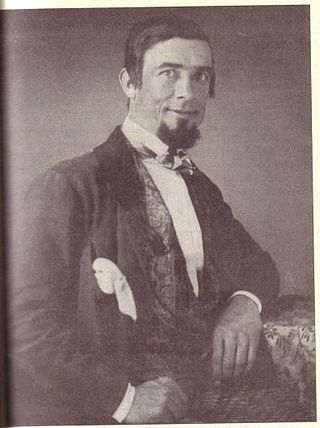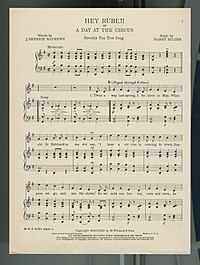Greyhawk, also known as the World of Greyhawk, is a fictional world designed as a campaign setting for the Dungeons & Dragons fantasy roleplaying game. Although not the first campaign world developed for Dungeons & Dragons—Dave Arneson's Blackmoor campaign predated it by about a year—the world of Greyhawk closely identified with early development of the game beginning in 1972, and after being published it remained associated with Dungeons & Dragons publications until 2008. The world itself started as a simple dungeon under a castle designed by Gary Gygax for the amusement of his children and friends, but it was rapidly expanded to include not only a complex multi-layered dungeon environment, but also the nearby city of Greyhawk, and eventually an entire world. In addition to the campaign world, which was published in several editions over twenty years, Greyhawk was also used as the setting for many adventures published in support of the game, as well as for RPGA's massively shared Living Greyhawk campaign from 2000–2008.

A circus is a company of performers who put on diverse entertainment shows that may include clowns, acrobats, trained animals, trapeze acts, musicians, dancers, hoopers, tightrope walkers, jugglers, magicians, ventriloquists, and unicyclists as well as other object manipulation and stunt-oriented artists. The term circus also describes the performance which has followed various formats through its 250-year modern history. Although not the inventor of the medium, Newcastle under Lyme born Philip Astley is credited as the father of the modern circus.

James Albert Varney Jr. was an American actor and comedian. He is best known for his comedic role as Ernest P. Worrell, for which he won a Daytime Emmy Award, as well as appearing in films and numerous television commercial advertising campaigns. He played Jed Clampett in a film adaptation of The Beverly Hillbillies (1993) and performed the voice of Slinky Dog in the first two films of the Toy Story franchise (1995–1999). He died at age 50 of lung cancer on February 10, 2000, leaving two posthumous releases, Daddy and Them and Atlantis: The Lost Empire.
Attrition warfare is a military strategy consisting of belligerent attempts to win a war by wearing down the enemy to the point of collapse through continuous losses in personnel, materiel, and morale. The word attrition comes from the Latin root atterere, meaning "to rub against", similar to the "grinding down" of the opponent's forces in attrition warfare.

An owlbear is a fictional creature originally created for the Dungeons & Dragons fantasy role-playing game. An owlbear is depicted as a cross between a bear and an owl, which "hugs" like a bear and attacks with its beak. Inspired by a plastic toy made in Hong Kong, Gary Gygax created the owlbear and introduced the creature to the game in the 1975 Greyhawk supplement; the creature has since appeared in every subsequent edition of the game. Owlbears, or similar beasts, also appear in several other fantasy role-playing games, video games and other media.

A battle cry or war cry is a yell or chant taken up in battle, usually by members of the same combatant group. Battle cries are not necessarily articulate, although they often aim to invoke patriotic or religious sentiment. Their purpose is a combination of arousing aggression and esprit de corps on one's own side and causing intimidation on the hostile side. Battle cries are a universal form of display behaviour aiming at competitive advantage, ideally by overstating one's own aggressive potential to a point where the enemy prefers to avoid confrontation altogether and opts to flee. In order to overstate one's potential for aggression, battle cries need to be as loud as possible, and have historically often been amplified by acoustic devices such as horns, drums, conches, carnyxes, bagpipes, bugles, etc..

Devil May Cry 3: Dante's Awakening is a 2005 action-adventure game developed and published by Capcom. The game is a prequel to the original Devil May Cry, featuring a younger Dante. Set a decade before the events of the first Devil May Cry in an enchanted tower, Temen-ni-gru, the story centers on the dysfunctional relationship between Dante and his brother Vergil. The game introduces combat mechanics with an emphasis on combos and fast-paced action. The story is told primarily in cutscenes using the game's engine, with several pre-rendered full motion videos.

Old Yeller is a 1957 American Western drama film directed by Robert Stevenson and produced by Walt Disney. It stars Dorothy McGuire and Fess Parker, with Tommy Kirk, and Kevin Corcoran. It is about a boy and a stray dog in post-Civil War Texas. The film is based upon the 1956 novel of the same name by Fred Gipson. Gipson also co-wrote the screenplay along with William Tunberg. The film's success led to a 1963 sequel, Savage Sam, which was based on a 1962 book by Gipson.
In politics, a dog whistle is the use of coded or suggestive language in political messaging to garner support from a particular group without provoking opposition. The concept is named after ultrasonic dog whistles, which are audible to dogs but not humans. Dog whistles use language that appears normal to the majority but communicates specific things to intended audiences. They are generally used to convey messages on issues likely to provoke controversy without attracting negative attention.

Dan Rice was an American entertainer of many talents, most famously as a clown, who was active before the American Civil War. At the height of his career, Rice was a household name. Dan Rice also coined the terms "One Horse Show" and "Greatest Show" while popularizing the barrel-style "French" cuff. He was a figure in the new American mass culture brought on by the technological changes of the Industrial Revolution. Rice ran for President of the United States in 1868. With changes in circus venues and popular culture after the Civil War, his fame has gradually slipped into such historical obscurity that in 2001 biographer David Carlyon called him "the most famous man you've never heard of".
"Yo, Blair, what are you doing?" was an informal greeting reportedly made by United States President George W. Bush to British Prime Minister Tony Blair during the summit of the Group of Eight industrialized nations (G8) in St Petersburg, Russia, on 17 July 2006. The line was popularly quoted in the media.
Shock and awe is a military strategy based on the use of overwhelming power and spectacular displays of force to paralyze the enemy's perception of the battlefield and destroy their will to fight. Though the concept has a variety of historical precedents, the doctrine was explained by Harlan K. Ullman and James P. Wade in 1996 and was developed specifically for application by the US military by the National Defense University of the United States.

Hey Rube: Blood Sport, the Bush Doctrine, and the Downward Spiral of Dumbness is a book written by Hunter S. Thompson, consisting of 83 articles split into three parts. The articles were first published on ESPN.com's Page 2 under Thompson's column Hey Rube. First published in mid-2004, the book contains articles from November 20, 2000, to October 13, 2003. It is sub-titled, Modern History from the Sports Desk.

The United States Marine Corps (USMC), also referred to as the United States Marines, is the maritime land force service branch of the United States Armed Forces responsible for conducting expeditionary and amphibious operations through combined arms, implementing its own infantry, artillery, aerial, and special operations forces. The U.S. Marine Corps is one of the eight uniformed services of the United States.
A pissing contest, pissing duel, or pissing match, is a game in which participants compete to see who can urinate the highest, the farthest, for the longest, or the most accurately. Although the practice is usually associated with adolescent boys, women have been known to play the game, and there are literary depictions of adults competing in it. Since the 1940s, the term has been used as a slang idiomatic phrase describing contests that are "futile or purposeless", especially if waged in a "conspicuously aggressive manner". As a metaphor it is used figuratively to characterise futile ego-driven battling in a pejorative or facetious manner that is often considered vulgar. The image of two people urinating on each other has also been offered as a source of the phrase.
John Pitts Spence was an American diver for the United States Navy and World War II veteran who is widely credited as the country's first combat frogman. Spence was the first enlisted man to be recruited into a clandestine group, operated by General William "Wild Bill" Donovan of the Office of Strategic Services (OSS), which would become known as the frogmen. The group was a predecessor of the present-day United States Navy SEALs.

"Zaza" is a song by American rapper 6ix9ine. It was released as a single through Create Music Group on February 19, 2021. The song was written solely by the artist and produced by Ray Keys. It marks 6ix9ine's first release following his second studio album, TattleTales (2020). The title of the song is slang for cannabis. In 2022, the song was removed from streaming services.









